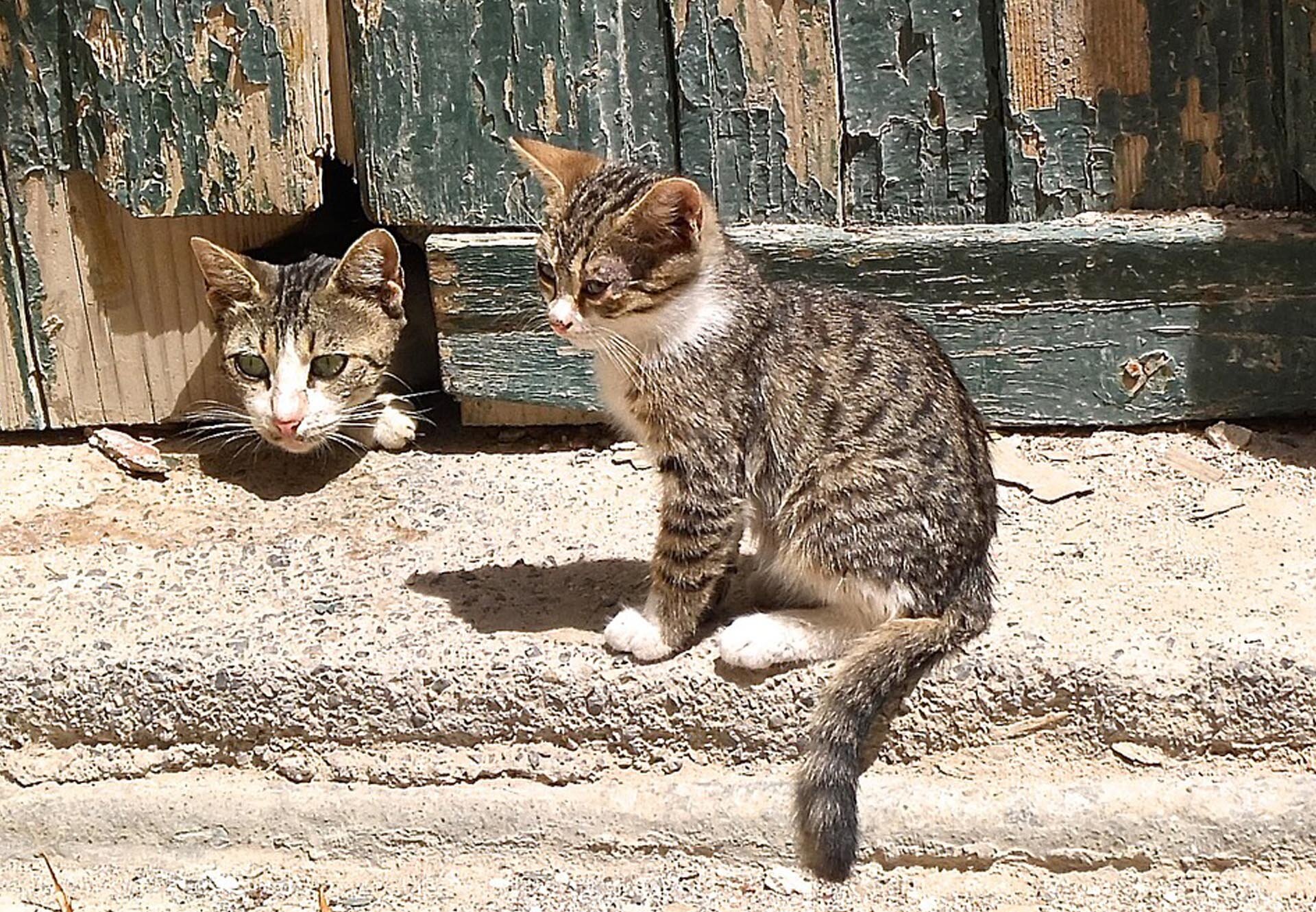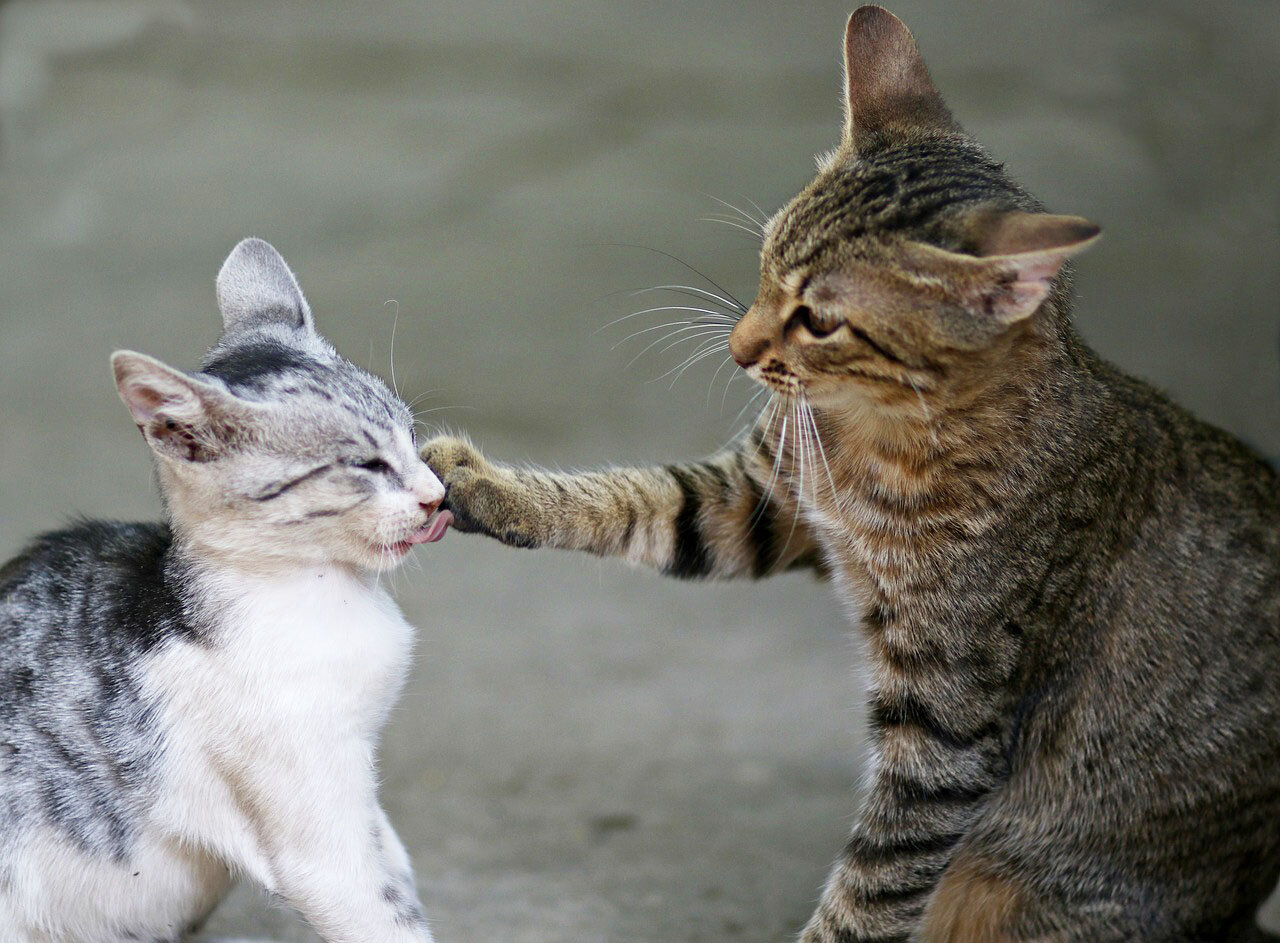Vaccinations Cats
At Darwin Vet we strongly recommend that your pet is vaccinated when young, with ongoing immunity then provided by annual booster vaccination. Your pet is at risk of infection from numerous viruses, some of which are potentially fatal. A simple vaccination program can protect them from most of these diseases. Vaccination is also the most cost-effective form of protection.
Animals are temporarily protected against many diseases by antibodies received from their mother’s milk. These maternal antibodies decline over the first couple of months of their lives, but until they drop sufficiently they can neutralise the effect of vaccines.
We can advise you on the correct vaccinations for your pet.
Immunity from vaccinations reduces over time and your beloved pet can again become more susceptible to disease. Regular health checks and booster vaccinations will provide the best protection.
First a quick reference guide
Cat Diseases:
Feline Enteritis
Cat Flu
Feline AIDS
Cats and kittens are at risk of infection from numerous viruses. Most of these diseases are potentially fatal, and treatment can be very difficult with no guarantee of success. A simple vaccination program can protect them from most of these diseases and it is the most cost-effective way of protecting your cat.
Kittens are temporarily protected against many diseases by antibodies received from the mother through the milk. These maternal antibodies decline over the first couple of months of their lives, but until they drop sufficiently they can neutralise the effect of vaccines.
Vaccination Chart
Kitten Vaccinations
A series of vaccinations is necessary for kittens. These vaccines need to be given at certain ages.
Initial vaccination programs should begin when the kitten is six to eight weeks old. From then they will require a booster four to six weeks later (10-12 weeks old), then again four weeks later (14-16 weeks old) with the last vaccination two to four weeks later (18-20 weeks Old). It won’t be until two weeks after the third lot of injections will they have maximum protection, so until then they should be quarantined inside. That is why a series of vaccinations is necessary for kittens and the vaccines need to be given at a certain age.
If adult cats haven’t had a vaccination for at least two years then they should have two lots of vaccination injections four weeks apart to build up to maximum protection again.
Occasionally after the vaccination is given, pets may be off-colour for a day or two, or have some slight swelling or tenderness at the injection site. Access to food and water and a comfortable place to rest is all that is needed for a quick recovery, but if you have any concerns please contact us.
Immunity from vaccinations reduces over time and your cat can again become more susceptible to disease. Regular health checks and booster vaccinations will provide the best protection for the life of your cat.
We vaccinate your cats against the following diseases
Feline Enteritis (Also known as Feline Panleukopaenia)
Very contagious and with a high death rate, especially for cats aged under 12 months. Pregnant cats may lose their young or give birth to kittens with abnormalities, quite often with brain damage. Symptoms are depression, neurological signs, loss of appetite, uncontrollable vomiting and diarrhoea, often with blood, and severe abdominal pain.
The virus spreads so easily that contaminated areas may need cleaning with special disinfectant. Cats that do recover may continue to carry the virus for some time and infect other cats.
Feline Respiratory Disease (Cat Flu)
Cat Flu is caused in 90% of cases by feline herpes virus (feline rhinotracheitis) and/or feline calicivirus. It is spread through contact with affected or unvaccinated cats. Cat flu affects cats of all ages, especially kittens, Siamese and Burmese cats. It is highly contagious and causes sneezing, coughing, fever, conjunctivitis, swelling around the eyes, runny eyes, nasal discharge, loss of appetite and tongue ulcers.
Fortunately, the death rate is low, except in kittens, but the disease is distressing and may persist for weeks. Recovered cats can continue to carry and spread the infection for long periods, and can show the signs of the disease again if they become stressed.
Feline Immunodeficiency Virus (FIV or Feline AIDS)
FIV is a serious disease that attacks the immune system of cats. It is spread from cat to cat usually by bite wounds. It is more common in male cats because they are more aggressive and roam more than females.
Cats can be infected for years and not show any signs at all. Symptoms vary widely because of the immunosuppressive nature of the virus. Cats may show lack of appetite, inflammed mouth, weight loss and apathy, fever, swollen lymph nodes, respiratory infection, inflammed eyes, pale (anaemia) or yellow mucous membranes, vomiting, diarrhoea, reproductive problems, increased susceptibility to other infections, neurological signs, leukaemia and tumours.
Once a cat has become infected it is infected for life, but in some cases the cat can still have good quality of life for months to years.
Vaccination will only work when given before the cat is exposed to FIV and is the only way to protect your cat from FIV.
As kittens, three vaccines are required, two to four weeks apart, then boosted annually. For adult cats, the vet will need to discuss with you the best plan for your cat, the first step being to ensure your cat is free from FIV.
FIV can be readily diagnosed by a quick blood test in the clinic. Cats other than indoor or kittens need to be tested for the virus prior to the vaccination to ensure they are not already infected.
The only way to prevent a cat being infected with FIV is through ongoing vaccinations.
When can I let my kitten outdoors?
Kittens are not fully protected until two weeks after their final course of vaccinations. Until then kittens should be kept indoors at all times. Once your kitten is old enough to go outside, there are a few key recommendations:
Supervise their first outings. Aim to introduce them to the outside world for a few minutes a day, close to meal times
Train them to walk on a cat harness.
Ensure they have a curfew – i.e. inside before dark (fewer fights, lower chance of being hit by cars, reduced loss of wildlife).
Provide ‘smart’ toys for indoor-only cats, or build an outdoor play atrium. A cat scratching post will help save furniture.




